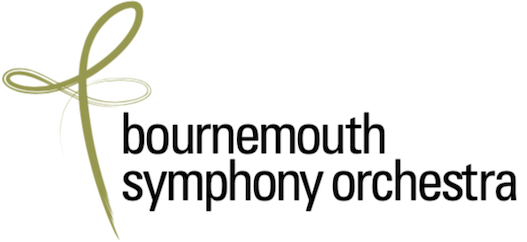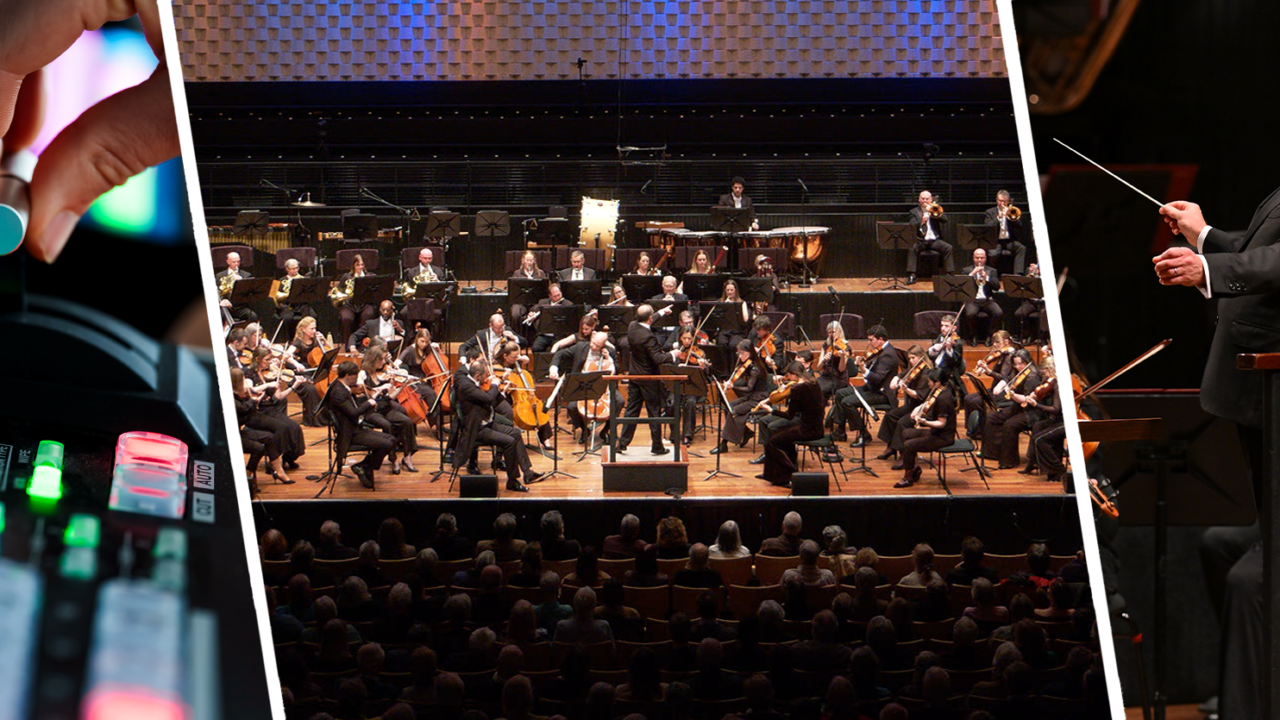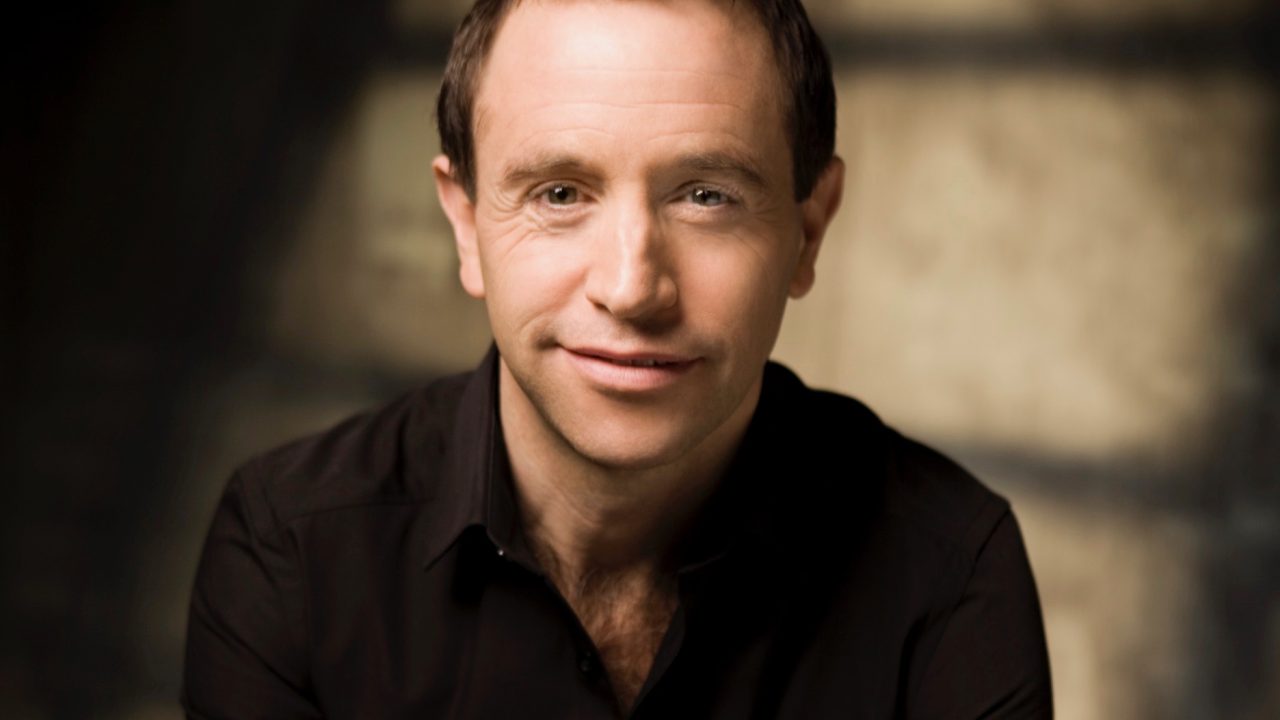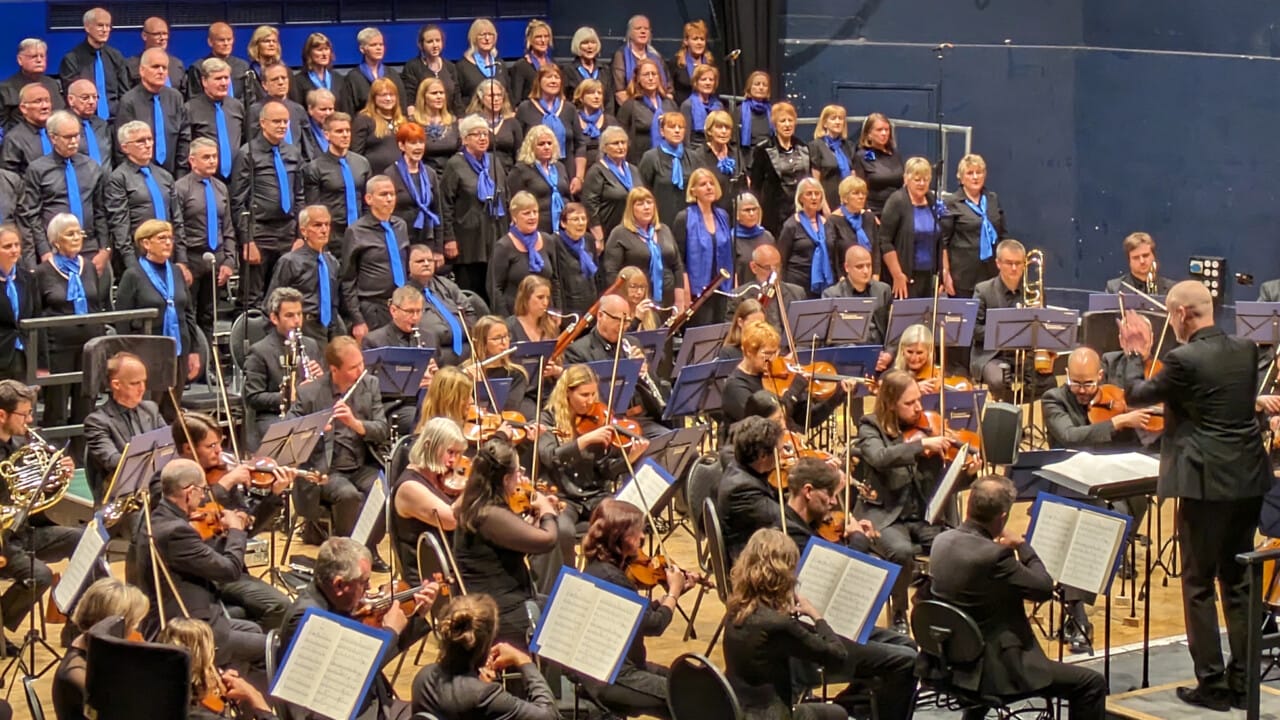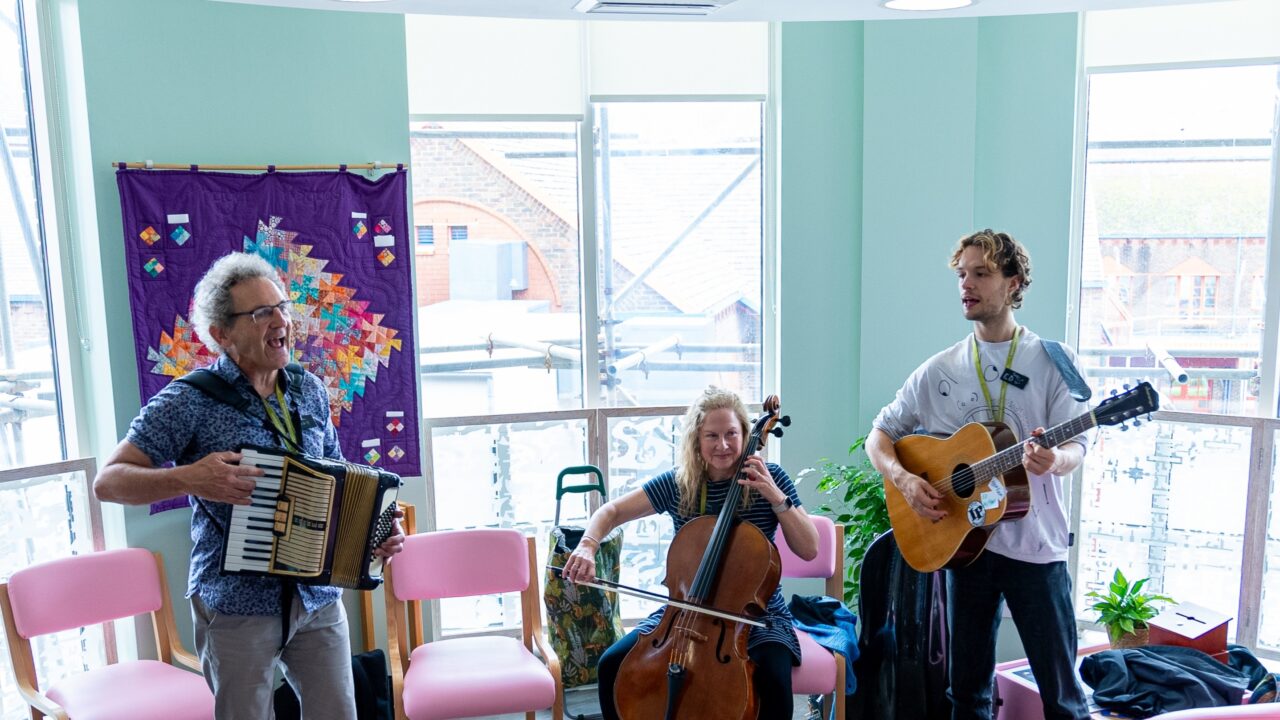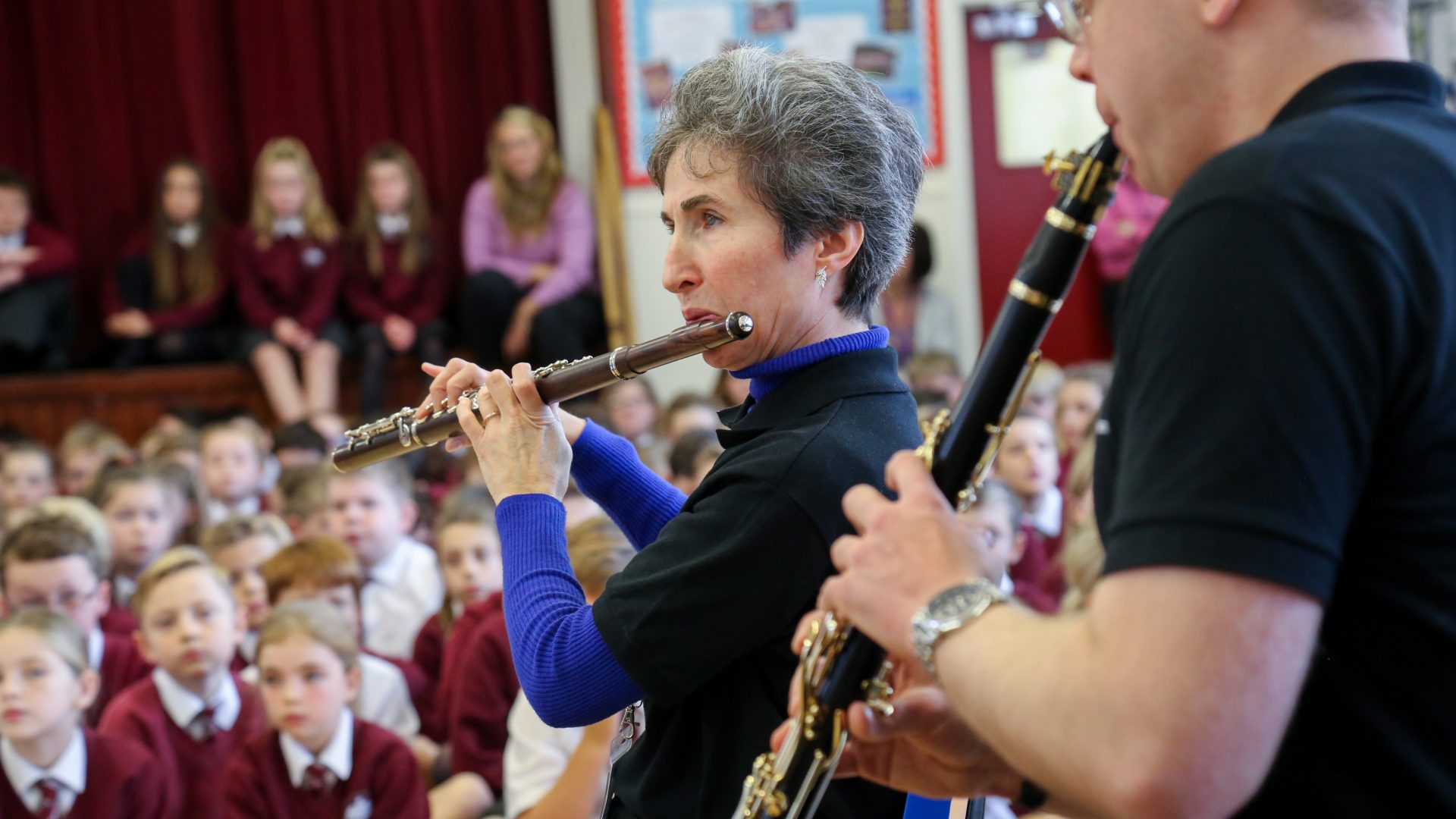We are performing the BBC Ten Pieces version, arranged to enable young students to play real, grown-up music, even if they have been learning for a short amount of time. So, the horn solo is divided up amongst the whole orchestra and the movement is abridged, with multi-layered parts ranging in difficulty from beginners to around grade 5 standard.
You might think, as I did, that this would have been an easy memorising exercise – after all, I could sing you most of the Flanders and Swann version, and even Mozart’s if you wanted. Even better, the flute gets to play quite a lot of the main themes. But in fact, I discovered I knew it too well and found myself merrily playing the tune along with the audio file, putting in bars I had no business playing – they aren’t in my part. I was forced to wrestle with snippets of counter-melody and odd part-bar rests where “my tune” petered out, whilst all the while hearing Michael Flanders’ lyrics against these harmony notes. Sometimes the words help – “I know some hearty folk whose party jokes…” etc. But I quickly realised that it is just as important to remember what I don’t play and that knowing too much isn’t necessarily an advantage.
After an hour or so of remembering what not to play, by a mixture of singing with the score and audio (pity the spouse who lives with a singing, fluting, headphone-wearing musician) – and shouting at myself for being an idiot, I have more or less rammed this re-worked version of Mozart’s fabulous Finale into my sluggish, middle-aged brain. On to Grieg and Bizet then! I am absolutely forbidden from hearing either Mozart’s or Flanders and Swann’s originals! But if you fancy a break from Brexit and a chuckle, you could do a lot worse than listen to this wonderful song: or you could just renew your acquaintance with Mozart, because how can you ever get tired of him?
I am a big fan of the BBC Ten Pieces which is a fantastic resource and am really looking forward to supporting the flute section and working with students I have never met. Such arrangements did not exist at the time when I was setting out with the flute; neither did the technology which makes them so accessible to me – audio versions online at the click of a button and software enabling parts to be transcribed into Braille and embossed within a few days of request, rather than the weeks or months it used to take. What would I not have given (teeth, maybe a vital organ or two) to have played in an orchestra even before I reached grade 5! The possibility simply didn’t exist and was not considered – and so, thirty-something years late, here I am!
The idea of sitting in the flute section to play and encourage young players, of being all in it together, a part of the orchestral team (to me, the most amazing team ever dreamed up by human beings), is thrilling!
No matter it isn’t Mozart’s original. No matter there won’t be a top-flight horn soloist, throwing a “beautiful sound so rich and round” around the concert hall. No matter if the tuning is a bit approximate or the ensemble a little ragged around the edges. And no matter if there are far too many flutes or clarinets, or a saxophone that needs accommodating. The point is the buzz of the final finished (well, almost ready) performance, the electricity that runs through me, even from hearing an orchestra tuning up, and the sense I have – finally – of being included as a part of the driving force which makes this music take flight. And this flight has no oxygen masks in the ceiling, no life jackets under the seat (I did check), and no inflatable exits at the stage doors! It has to fly, come what may! I can’t wait!
